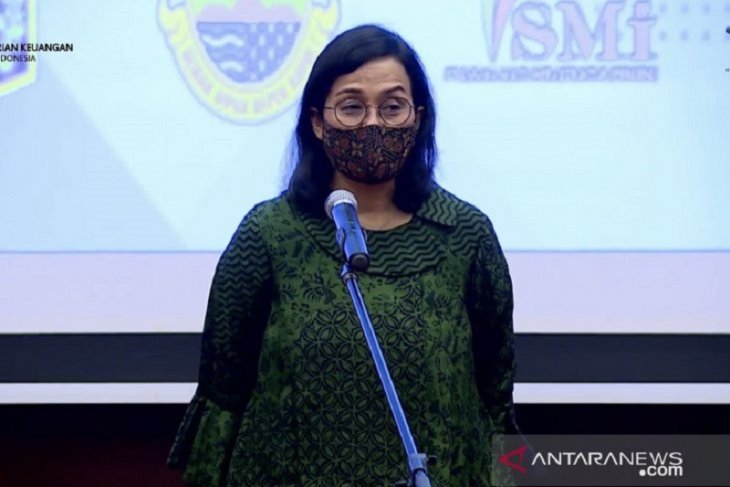Live Streaming
Program Highlight
Company Profile
Government to Focus Spending on Food Security, ICT Next Year: Minister
Written by Ani Hasanah
Finance Minister Sri Mulyani Indrawati. ANTARA/AstridFaidlatulHabibah/sh
Indonesia’s state budget for next year will focus spending on three prioritized sectors — food security, industrial estate development, and information and communication technology (ICT).
"We will support this priorities for additional spending, namely first is food security, secondly in the development of industrial estates supported by infrastructure, and third in ICT so that connectivity in the digital technology can be improved and evenly distributed throughout Indonesia," Minister of Finance, Sri Mulyani, said after attending a limited cabinet meeting, held via videoconferencing, on the draft budget for the year 2021 at the Bogor Presidential Palace in West Java on Tuesday.
At the cabinet meeting, President Jokowi said he has decided to widen the deficit to 5.2 percent of the GDP (Gross Domestic Product), which is higher than the 4.7-percent deficit that was initially agreed upon.
"With a deficit of 5.2 percent of GDP in 2021, we will have spending reserves of Rp179 trillion, which the President will set priorities for spending to truly support national economic recovery next year," Sri Mulyani informed.
In addition, the Jokowi has also prioritized the sectors of education and health, especially for post-2020 COVID-19 handling and support for vaccine costs.
The President has called another limited cabinet meeting tomorrow to discuss fund allocations under the additional budget derived from the deficit to ensure the funds are spent productively and in a well-planned manner.
The President has emphasized that the extra-spending should be channeled into projects that boost productivity and reduce poverty and unemployment, and benefit the economy.
“These (sectors) are what the President has emphasized. We, with the Bappenas (the National Development Planning Agency), have received many additional expenditure proposals from all ministries / institutions. And the President has asked us to focus on these expenditures, which are supported by the additional deficit, to restore the economy and create employment opportunities, and reduce poverty more quickly, " she elaborated. (ANTARA)



